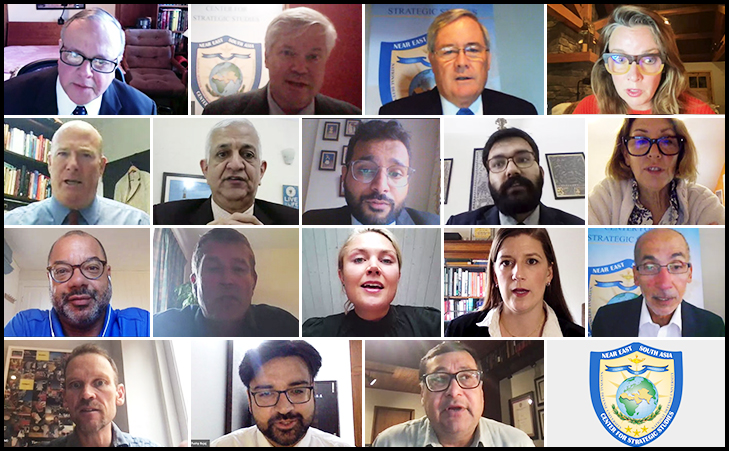Executive Seminar: Climate Change
September 1, 2021 2021-09-01 21:34Executive Seminar: Climate Change
From 26 July to 05 August 2021, the NESA Center conducted a two-week seminar focused on the security implications related to climate change. Col. Daniel Curfiss (Ret.), Dr. Gawdat Bahgat, and Mr. David DesRoches moderated roundtable discussions with senior climate experts, current and former intelligence officers, and leaders in the private sector and academia to facilitate dialogue to combat the climate crisis. The seminar examined climate change from a security perspective and how different regions are thinking about climate risks. Climate change is impacting and exacerbating risks to security at home and abroad.
The long-term impacts of climate change on national security were examined and will prove to be a global challenge in the years to come. The ocean temperatures are expected to rise, natural disasters are becoming more frequent, and the rise in carbon emissions persist, posing a threat to water security, food security, and are forcing the way the U.S. must consider energy consumption. If the transition to renewable energy and alternative methods are not strongly pursued, the detriments to the climate will escalate to a level that is irreversible, which will limit or completely change the lives of all citizens.
Moving forward, global cooperation is a must. Climate change does not respect borders, and therefore, neither should mitigation, adaptation, geoengineering, and consequence management efforts. Technological investments and innovations such as renewable energy batteries are tangling the possibility of curbing climate change in front of the global arena. The perennial nature of climate change will require collective effort and monetary support across the board.








